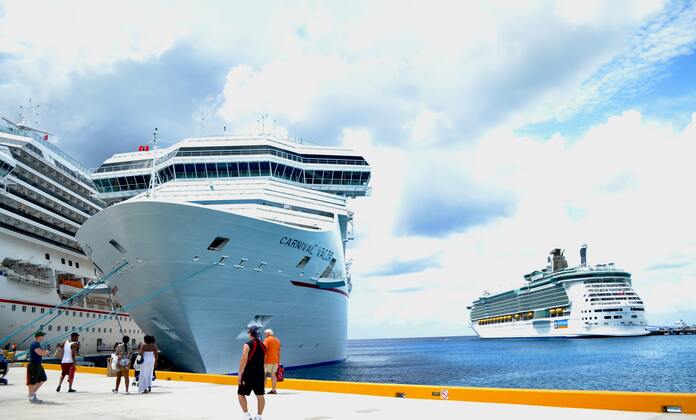Carnival Stock (NYSE:CCL)
Carnival, the market leader in the cruise industry, dropped 3.6% from the opening bell on Friday until 10:50 a.m. EST, reversing a three-day trend of steady gains. Not even Carnival-related news could bring the stock price down today. Nonetheless, macroeconomic news has contributed to the stock’s decline.
What’s the Reason?
The week began on a good note for Carnival (NYSE:CCL), as the company said on Tuesday that Cyber Monday sales had increased by 50% compared to the previous Cyber Monday before the pandemic in 2019.
As reported on Monday, March 28–April 3 was the biggest booking week in Carnival’s history, confirming an earlier announcement from this year. That reaffirmed management’s belief that there is sufficient pent-up demand to sustain the stock’s upward trajectory.
However, there is also the state of the economy to think about. The U.S. Department of Labor said Friday morning that the economy added 263,000 non-farm jobs in November, roughly 30% higher than the 200,000 jobs predicted by economists. Wages for these positions are also increasing faster than projected, at 5.1% annually compared to the 4.6% pay growth predicted by economists.
What’s Next?
Is Carnival stock in trouble now? The data might be interpreted in many ways. However, one common interpretation (shared by most investors this morning) is that the economy is still operating at too high a temperature. With more people employed and with more disposable income, prices will continue to rise, forcing the Federal Reserve to maintain its gradually increasing interest rates. Most investors anticipate a rate hike of 50 basis points from the Federal Reserve at its meeting later this month. Still, the Fed might potentially boost rates by 75 basis points.
Carnival has $35.3 billion in interest-bearing debt, so an increase in interest rates may be disastrous for the company.
Inverting the narrative reveals that the day’s news is not all terrible for Carnival stock. The greater the number of individuals who have work (and who make money from their occupations), the more people will have disposable income and be able to afford a vacation on the Carnival.
Moreover, suppose the Fed maintains its resolve and decides to raise interest rates by just 50 basis points in a few weeks. In that case, Carnival has the best of all worlds: low-interest rates on its debt and increased income to pay the interest.
Shareholders of Carnival stock would be well to keep their fingers crossed that this turns out to be the case.
Featured Image: Unsplash @ Stephanie Klepacki















